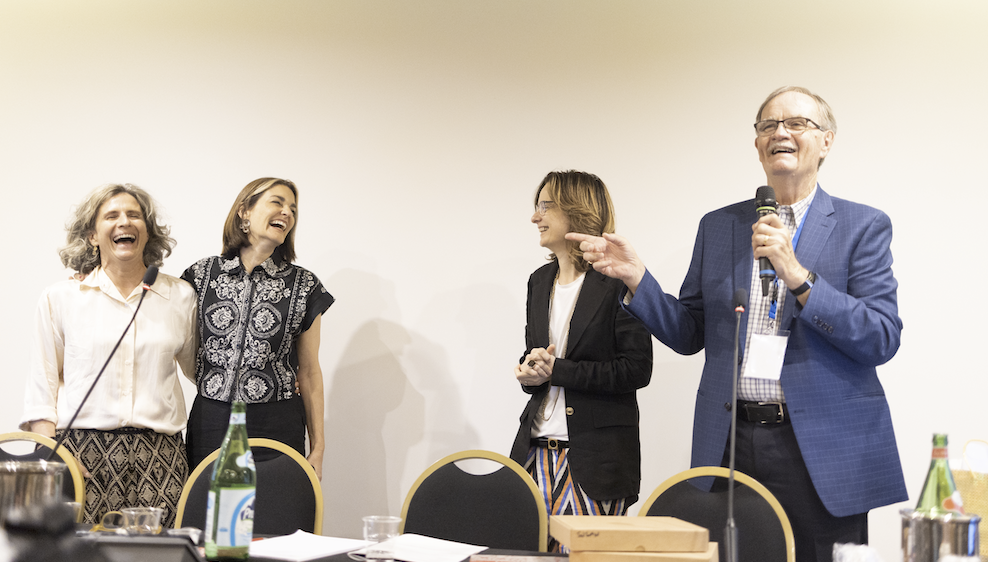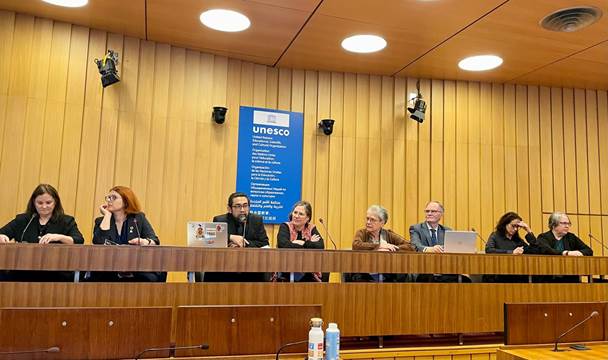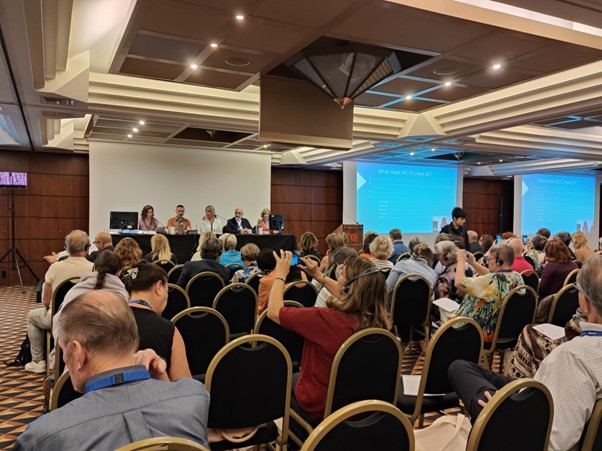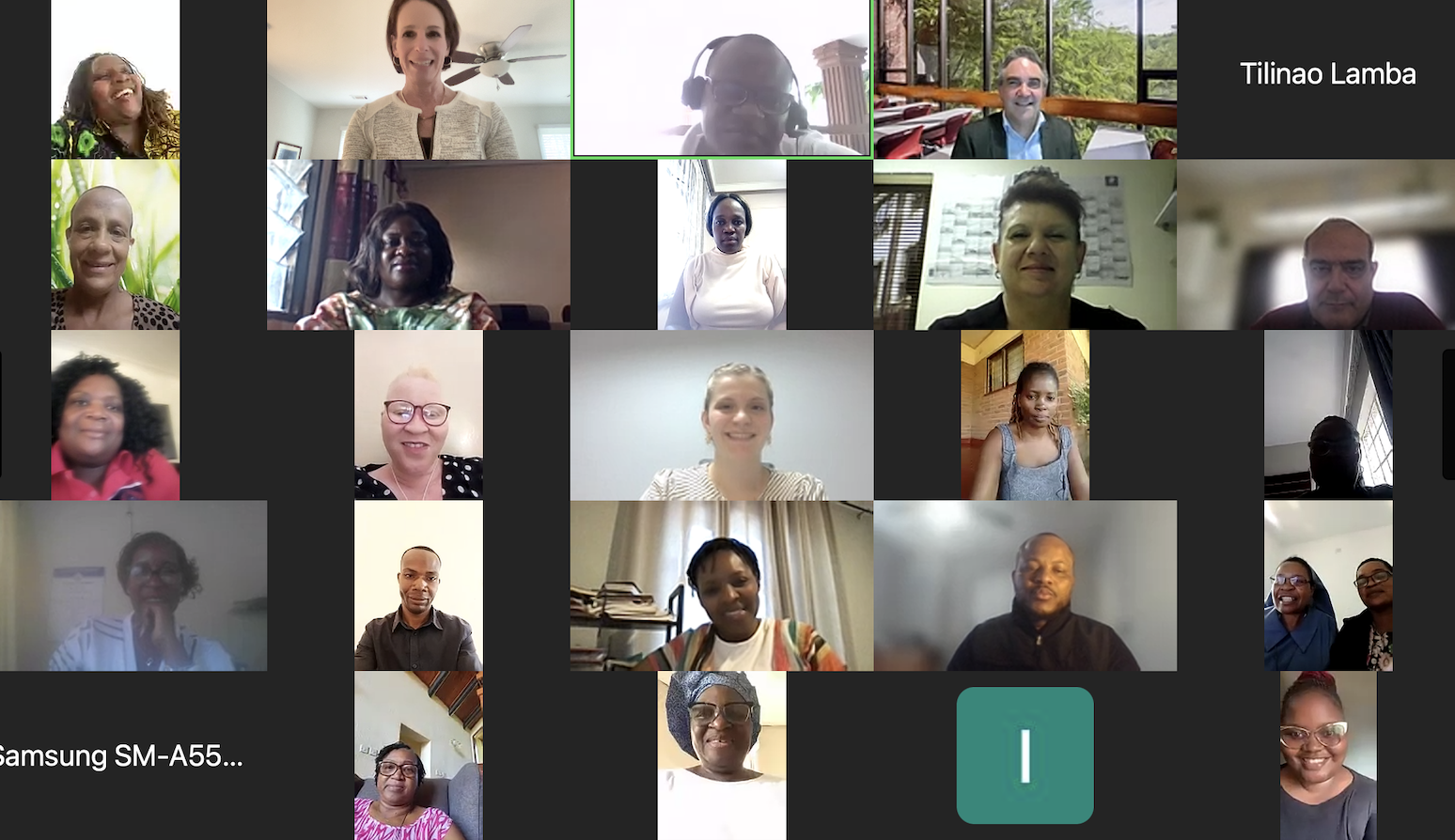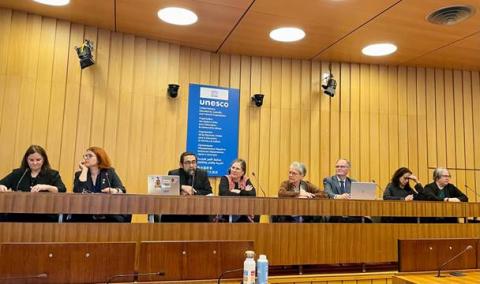
Event Overview
The 2024 International Conference of NGOs, held at UNESCO Headquarters from 17-19 December 2024, focused on "Building Capacity for Action." It gathered global stakeholders to discuss UNESCO’s priorities, enhance capacity building, and foster collaboration between NGOs and UNESCO's program sectors.
Day 1
Tuesday, 17 December 2024: The conference began with opening remarks from key figures, including UNESCO Deputy Director-General Xing Qu and H.E. Ambassador Simona-Mirela Miculescu. The session included an overview of UNESCO’s Programme and Budget for 2026-2029, presented by Zazie Schafer. Discussions focused on Priority Africa, with experts like Mohamed Elfarnawany highlighting capacity-building challenges and opportunities across the continent. A session on Successes, Challenges, and Lessons Learned explored collective action between NGOs, UNESCO sectors, and national commissions. Afternoon parallel sessions delved into specific topics, including Education for Peace, Human Rights, and Youth Engagement, facilitating direct dialogue between NGOs and UNESCO's sector leaders.
Day 2
Wednesday, 18 December 2024: Day 2 featured a plenary on Gender Equality, discussing issues like technology-facilitated gender-based violence, led by experts such as Begoña Lasagabaster. Other key moments included the launch of the Manual for NGO Participation in the Ocean Decade, and sector dialogues on Culture and Social and Human Sciences, with a focus on initiatives like MONDIACULT 2025 and the legacy of the Transatlantic Slave Trade. In the afternoon, NGOs contributed to the refinement of UNESCO's budget proposals for 2026-2029, followed by a workshop on multi stakeholder approaches to fostering change within institutions.
Day 3
Thursday, 19 December 2024: The final day featured a session on Building Partnerships, with Dumitru Drumea and others discussing NGO collaboration with UNESCO. It also included the presentation of the Activity and Financial Reports of the NGO-UNESCO Liaison Committee. The NGO Hub allowed civil society to share experiences, fostering networking and future collaboration. Dr. Bill Borgen, President of IAC, provided an overview of the association’s aims and activities and invited collaboration with other NGO’s with similar interests. The conference concluded with the approval of NGO Recommendations for UNESCO’s upcoming budget and program, followed by a closing session with outgoing and newly-elected Chairpersons.
Conclusion
The 2024 conference successfully brought together diverse stakeholders to discuss key issues like education, gender equality, and cultural preservation, fostering stronger partnerships and refining proposals for UNESCO's 2026-2029 priorities.
IAC and UNESCO's Education Sector
The International Association for Counselling (IAC) engaged in a productive meeting with Astrid Gillet, Chief of the Executive Office of UNESCO’s Education Sector, and her colleagues to explore potential collaboration opportunities. During the meeting, IAC expressed a strong interest in supporting UNESCO’s mental health support in Education, career guidance initiatives (particularly those related to the BEAR Project), UNESCO's work in crisis conditions, and its regional frameworks in Africa and Europe. IAC will follow UNESCO’s upcoming Global Career’s Month in 2025 with interest, recognizing it as a valuable opportunity for future cooperation. IAC IAC President, Dr. Bill Borgen, IAC CEO, Naoise Kelly, and IAC Consultant Dr. Roberta Borgen were particularly encouraged by the alignment between IAC’s work and UNESCO’s educational priorities under the leadership of Stefania Giannini, Assistant Director-General for Education at UNESCO. This initial conversation has laid the groundwork for further exploration of synergies between the two organizations to advance shared goals in education and social inclusion.

